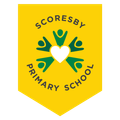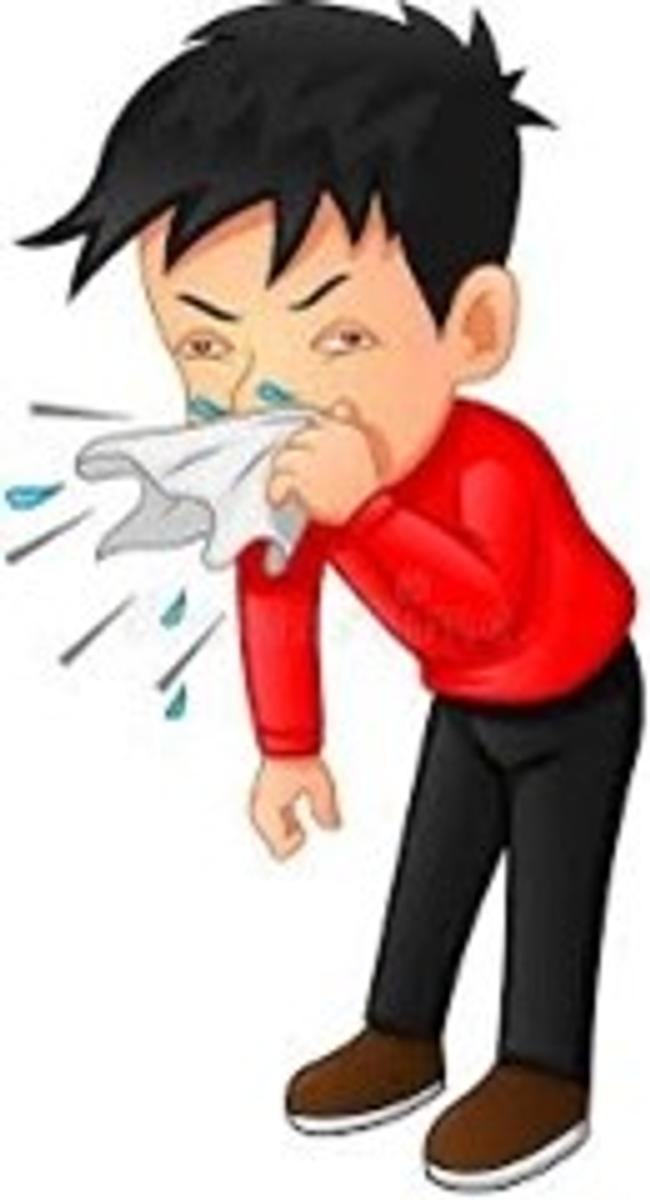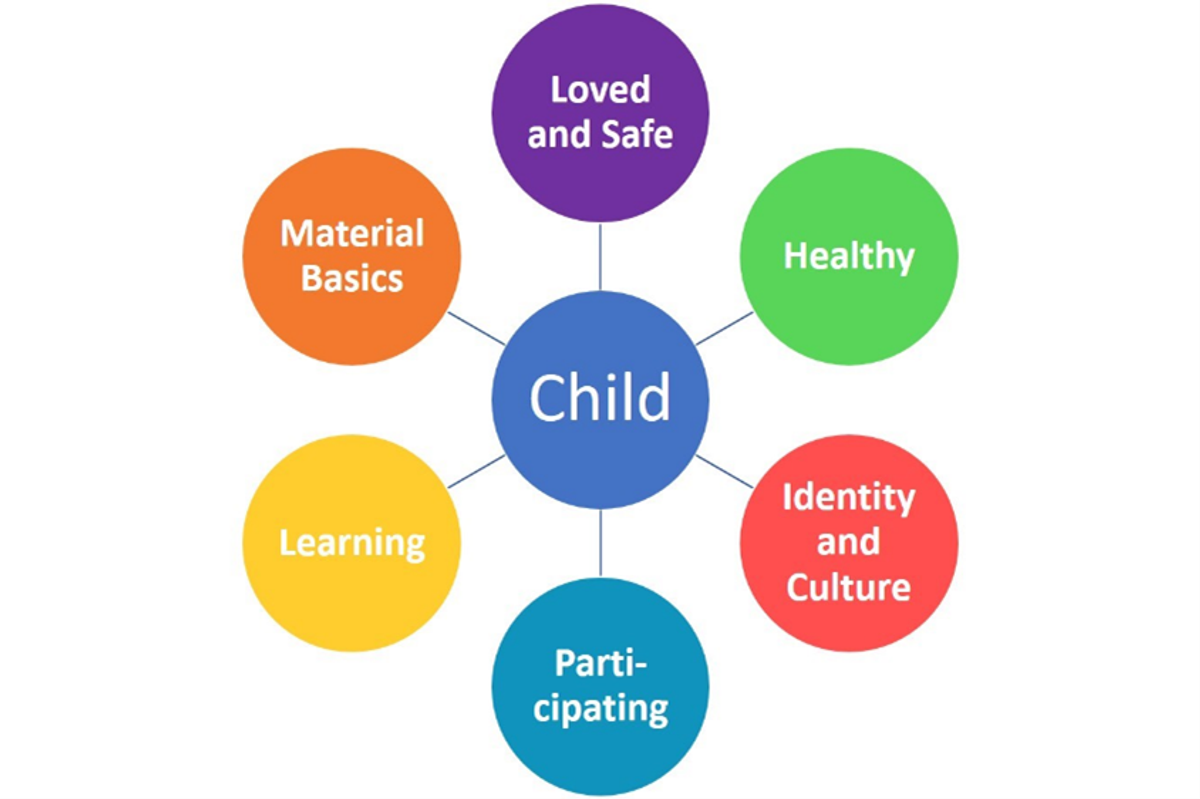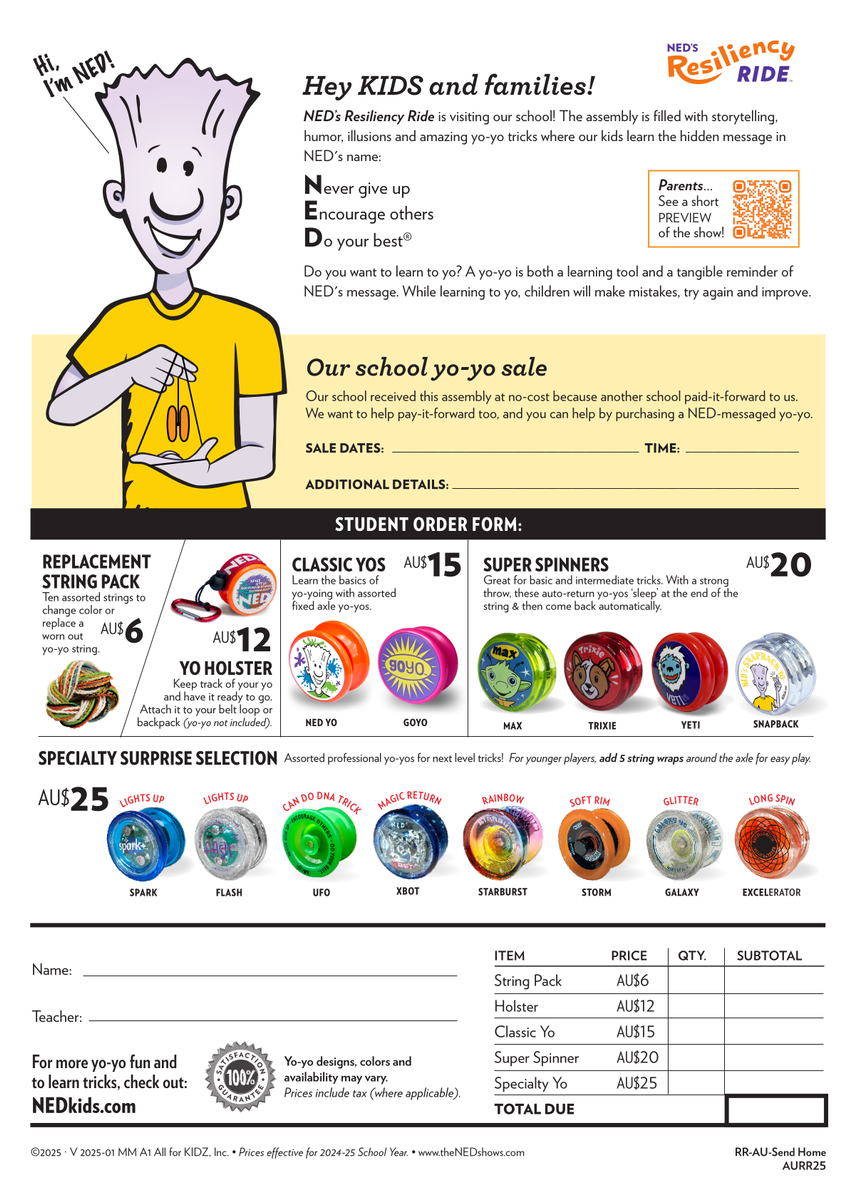From Our School Leaders
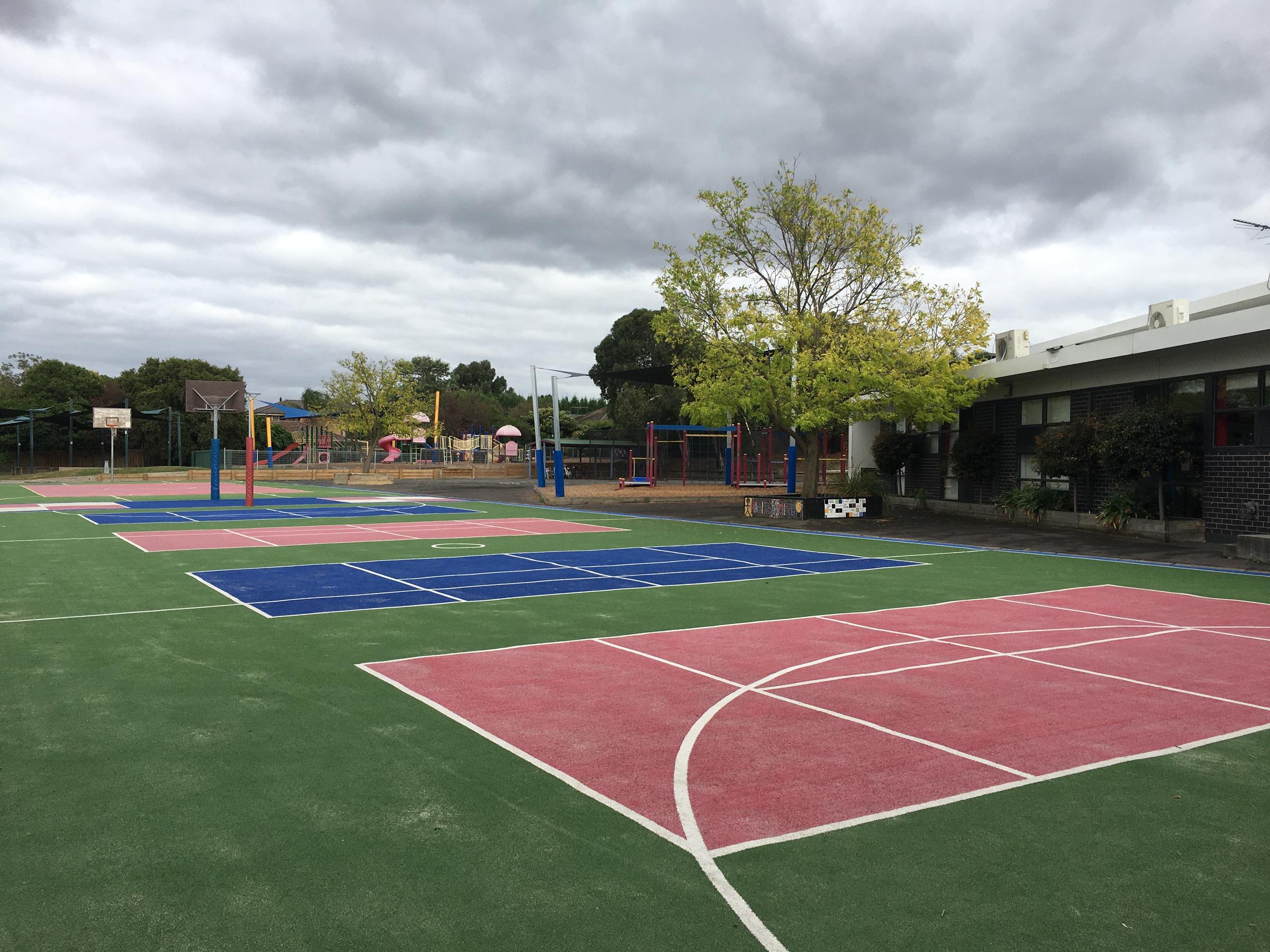
Welcome to this month's Health and Wellbeing newsletter.
NED’s Resiliency Ride
We are excited to welcome NED’s Resilience Ride to Scoresby Primary School! This engaging and interactive performance will take place on Friday 20th June at 2.40pm, and is sure to leave a lasting impression on our students.
The NED show is all about building resilience, kindness, and a positive mindset - important life skills that help our students face challenges and bounce back stronger. Through storytelling, humour and impressive yo-yo tricks, the performance shares NED’s powerful message: Never give up, Encourage others and Do your best.
The session promotes a school-wide focus on wellbeing and reinforces our HEART values. It’s a great way to support our students in understanding how to handle setbacks, support their peers, and stay motivated in all aspects of learning and life.
Following the show, there will be a yo-yo sale to help students practise the tricks and keep the message alive. All purchases support future performances in other schools. See the NED Yo-Yo Flyer below for more information.
We look forward to seeing our students inspired by NED’s message and walking away with a smile, a skill and a stronger sense of self-belief!
Stay Well This Winter
It is cold and flu season once again. There are currently lots of germs circulating in our school community, including Influenza-A, COVID, and other illnesses with cold and flu-like symptoms. If your child is unwell, please keep them at home. Test for Influenza and COVID and, if your child does test positive for COVID, follow the recommended health advice which is to isolate for five days after testing positive.
Department of Health Covid 19 advice.
Symptoms of Influenza (flu) can hit very quickly and may last several weeks. Vaccination is the best way to protect yourself and others from getting the flu.
Keeping our school community well
Parents, carers and students are encouraged to practice prevention measures, including:
· Washing and sanitising hands regularly
· Avoiding touching eyes, nose and mouth with unwashed hands
· Covering nose and mouth when coughing or sneezing
· Staying home if unwell and consulting a General Practitioner (GP) or Nurse-on-call as required
· Staying up-to-date with flu and COVID-19 vaccinations.
Flu vaccinations
Flu vaccinations can be booked through GPs and pharmacies, many of which can also provide COVID-19 vaccinations. Flu vaccination is recommended for everyone aged 6 months and over.
Understanding Children’s Mental Health and Wellbeing
The Australian Research Alliance for Children and Youth (ARACY) describe six factors that support and promote the wellbeing of a child or young person:
1. Loved and safe
This includes positive family relationships and connections with others, along with personal and community safety. Children and young people who are loved and safe are more likely to:
· Be confident, have a strong sense of self-identity and high self-esteem.
· Form secure attachments, have pro-social peer connections, and positive adult role models or mentors in their life.
· Be resilient, withstanding life challenges and responding constructively to setbacks and unanticipated events.
2. Material basics
The wellbeing of children and young people is enhanced when they:
· Have access to material basics that they need to live their life.
· Live in adequate and stable housing, with adequate clothing.
· Have access to healthy food and clean water and the materials they need to participate in education and training pathways.
3. Healthy
Children's wellbeing is promoted when they have:
· Their physical, developmental, psychosocial and mental health needs met.
· Access to services to support their growth and development.
· Access to early intervention measures to address any emerging health or developmental concerns.
4. Learning
Learning is a lifelong process. Children and young people learn through formal and informal experiences within the classroom, and in their homes and communities. Children's wellbeing is enhanced when they participate in and experience an education that enables them to reach their full potential and maximise their life opportunities.
5. Participating
Children and young people's participation includes involvement with peers in the community, having a voice on matters that concern them, and access to technology for social connections. The wellbeing of children and young people is promoted when their views are considered, and they are involved in decision-making processes that affect them.
6. Identity and Culture
Having a positive sense of culture and identity is central to the wellbeing of children and is particularly important for Aboriginal and Torres Strait Islander children and other culturally and linguistically diverse (CALD) children. This includes having a sense of spiritual wellbeing.
SUE HARTLEY AND NICOLE RHEUMER
Scoresby Primary School Leaders
NED Yo-Yo Flyer
